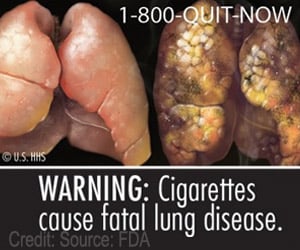The younger the subject start smoking, the more likely to smoke daily as an adult, even into 40s, and the harder it will be to quit.

‘Cigarette smoking is an avoidable health risk, and its seeds are in childhood. National programs restricting sales of tobacco products to people under age 21 are the need of the hour.’
Read More..




"Based on our data coupled with a variety of other evidence, we found childhood smoking leads to adult smoking," said David Jacobs, Jr., Ph.D., lead study author and Mayo Professor of Public Health in the Division of Epidemiology and Community Health at the University of Minnesota in Minneapolis.Read More..
"Cigarette smoking, even experimentally, among children of any age should be strongly discouraged."
Researchers analyzed smoking information on more than 6,600 people (57% female) between the ages of 6-19 and during their 20s and 40s, from Finland, Australia and the United States. Participants were followed from childhood into middle age as part of the International Childhood Cardiovascular Cohort Consortium.
The study analysis found:
Although the current study was conducted in three developed nations, the researchers believe that the results likely apply more broadly.
Advertisement
"Cigarette smoking is an avoidable health risk, and its seeds are in childhood. These results strongly support Tobacco 21, a national movement to restrict all sales of tobacco products to people under age 21. The American Heart Association is an advocate of Tobacco 21," Jacobs said.
Advertisement
It re-emphasizes the importance of keeping tobacco products out of the hands of children before age 21 to prevent long-term addiction," said Rose Marie Robertson, M.D., FAHA, deputy chief science and medical officer for the Association and co-principal investigator of the American Heart Association's Tobacco Center for Regulatory Science, who was not involved in this study.
"Vaping products had not been introduced at the time these study participants were teens, but it is plausible that the findings may relate to vaping as well, since both addiction to nicotine and the adverse effects of nicotine on the developing brain in youth are relevant to these nicotine delivery devices as well."
Source-Eurekalert








